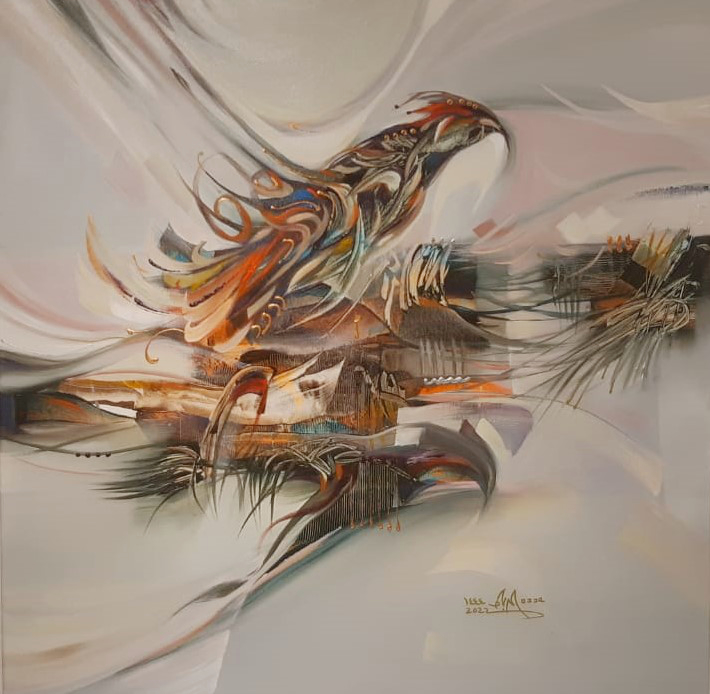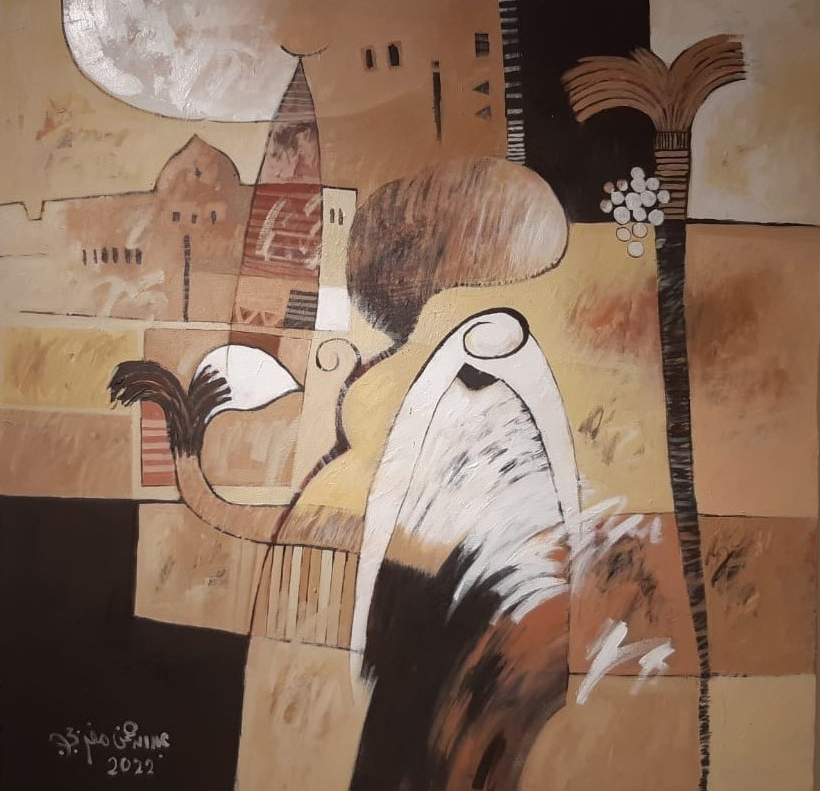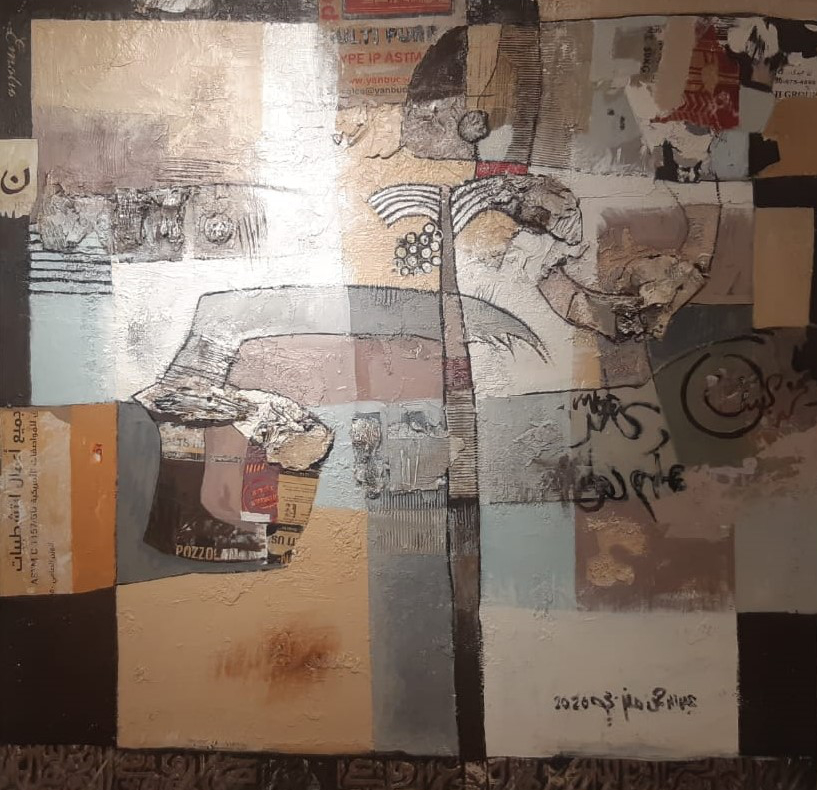JEDDAH: Jeddah has long been known for its active art movement that has garnered attention worldwide. The city, however, is witnessing somewhat of a downgrade in its status as the center of creative production in the Kingdom.
Meanwhile, the Saudi capital is witnessing the opposite, helped along by the fact that some Jeddah artists have opted to open up galleries in Riyadh.
Art journalist Khairallah Zarban said the capital’s culture scene is thriving, in contrast to Jeddah and other Saudi cities, with a plethora of exhibitions and growing demand for new work.
Notably, several leading creatives from Jeddah have headed to Riyadh, to meet the demand from hotels, resorts, airports and government projects including NEOM and AlUla. This includes Taha Sabban, Safeya Binzagr, Abdullah Nawawi, Abdullah Hammas, Ahmed Felemban, Ibrahim Bouqis, Na’il Mulla, Mohammed Al-Aajam and Abdullah Idris.
“One of the reasons behind the thriving art movement in Riyadh is the mega projects, such as Qiddiya and Diriyah. Moreover, artists can make their way to AlUla, NEOM, as well as a number of heritage and tourist sites,” Zarban said.
HIGHLIGHTS
• Six prominent artists from Jeddah are displaying their artwork at the 6-Icons exhibition organized by 55-Icon Gallery.
• Big projects like NEOM, AlUla and Qiddiya are helping create a thriving art scene in Riyadh.
• Jeddah is witnessing a decline in the fine art movement due to low demand for paintings.
Abdulrahman Maghrabi, a prominent Saudi artist, told Arab News that Riyadh’s big companies, government agencies, and individuals are now keen to acquire high-quality artworks by accomplished artists.
About two years ago, Maghrabi — who has curated many art and cultural events and participated in several local and international exhibitions, including in Jeddah, Riyadh, Cairo, Algeria, Tunisia, and the UK — held his seventh exhibition at the Ahlam Studio Gallery in the capital. He said that the exhibition was a success, and he was lucky to find people who were interested in his work.
“Jeddah has recently witnessed a decline in its fine art movement, and that is due to the low demand for paintings. It seems that there is no more interest in artworks in Jeddah, compared to Riyadh.” Maghrabi noted that most of Jeddah’s art pioneers, such as Abdullah Hammas, have started gallery businesses in the capital city.
Despite having the right to display their artwork wherever it would be most rewarding, Jeddah’s artists have not forgotten the city that first embraced and nurtured their talents.
Six prominent artists are displaying their work at the 15-day “6-Icons” exhibition, which kicked off in Jeddah last Sunday. The event is being organized by the 55-Icon Gallery. 
“We called the event ‘6 Icons’ since six top artists from Jeddah are participating with some 24 abstract paintings in the 55-Icon Gallery. The artists are Fahd Khulaif, Mohammed Al-Rabat, Abdulrahman Maghrabi, and Nawal Al-Suraihi,” said Matluba Qurban, an organizer, who added that among the works displayed are paintings by the well-known Jeddah-based Somali artist Abdulaziz Ashour and the famous Egyptian artist Moataz Kamal.
Qurban added that the exhibition is open every day from 10 a.m. to 1 p.m. and from 5 p.m. to 10 p.m., and could be extended for a third week.
Maghrabi told Arab News that, through this exhibition, they want to breathe new life into the city’s slowing art movement. He added that the Ministry of Culture has spared no effort to support the art movement in the Kingdom.
“The Ministry of Culture is supportive. However, we hope it would provide more, especially when it comes to classifying the artists. We are hopeful the Culture Ministry would announce the classification of local artists, based on their qualifications, experience, and artistic contributions. Art is at sixes and sevens,” Maghrabi said.
He added that new artists have shown up, causing big names to stay away. “We would appreciate it if the Culture Ministry could organize galleries for these big names. It is a problem when the young generation is supported at the expense of the old generation.
“There are leading, middle and modern generations of artists. The ministry should take this into consideration, especially if we know that many leading names have left the scene for such reasons,” he said.
Maghrabi explained that some artists have been discouraged for various reasons, most notably financial because few people are acquiring their work. “These factors can frustrate any artist,” he added.
It should be noted that the Saudi Ministry of Culture, in coordination with its tourism counterpart, has directed hotels and resorts to acquire the paintings of Saudi artists.
Zarban commented: “This move by the ministry is another great show of support (for) Saudi artists, and would surely help the local artwork sale and acquisition movement to further flourish.”














